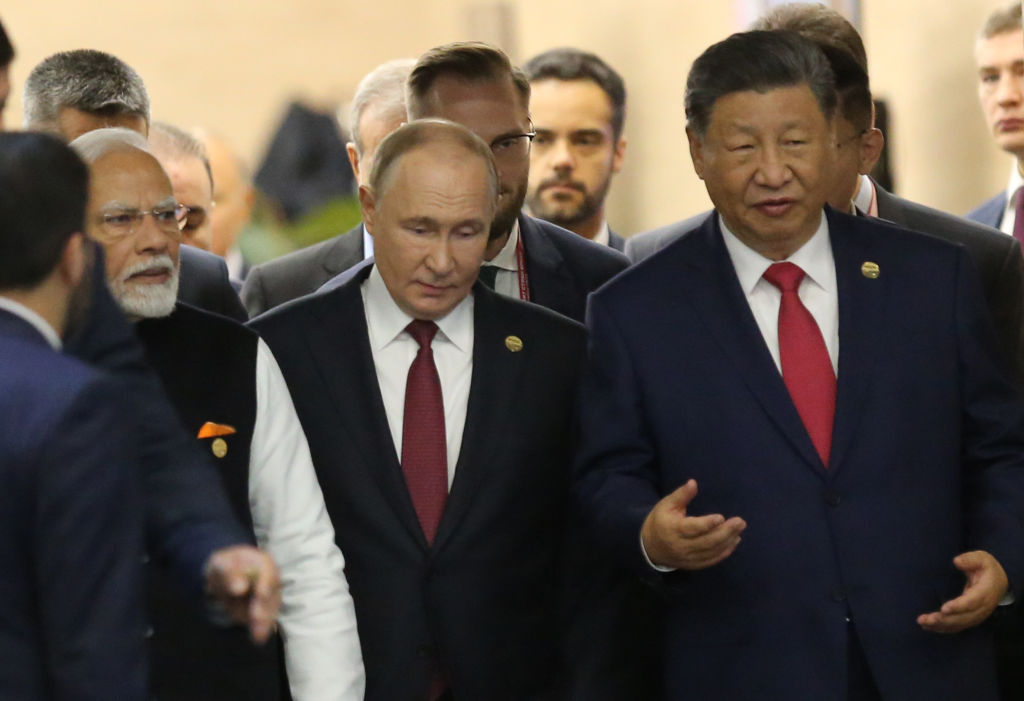The post-war order of free trade is dying before our eyes—and perhaps that’s the best thing that could happen to the West. What we’re witnessing today is nothing less than a fundamental realignment of geopolitical power relations, where democratic states find themselves forced to adopt authoritarian economic practices to defend their own sovereignty. But this transformation reveals a deeper cultural problem that has been decades in the making: Our civilisation’s inexplicable war against the very foundations that make modern life possible.
The European Union is planning measures that would have been unthinkable just a decade ago. Chinese companies will be required to transfer technology to European firms if they want access to European markets. Joint ventures could become mandatory, local sourcing quotas enforced—in short, all those practices about which the West has criticised China for years. These measures, announced for November, are theoretically directed against all non-EU companies, but the real target is obvious: China’s subsidized industrial products have flooded European markets while Beijing’s looming restrictions on rare earth elements threaten to squeeze European manufacturers into submission.
The irony is unmistakable but strategically necessary. A rules-based international order only works when all participants play by the same rules—a condition that has long ceased to exist. Yet this shift exposes something more troubling: We’re adopting these measures not from a position of strength, but because we’ve systematically weakened our own industrial foundations.
Even more drastic action came from the Dutch government’s takeover of Chinese-owned semiconductor manufacturer Nexperia under the rarely-used Goods Availability Act. This “highly exceptional” intervention, as Dutch authorities themselves call it, shows how deeply Chinese capital has penetrated European critical infrastructure. Nexperia, owned by China’s Wingtech Technology, produces basic semiconductor components essential for automotive and consumer electronics—chips that form the backbone of Europe’s industrial economy. What was once considered normal business activity is now recognised as potential leverage that European policymakers can no longer ignore.
While Europe responds regulatorily, America is mobilising private capital on an unprecedented scale. JPMorgan Chase’s announcement of a $1.5 trillion (€1.29 trillion) Security and Resiliency Initiative over the next decade represents perhaps the most ambitious private investment for national security in modern history. “It has become painfully clear that the United States has allowed itself to become too reliant on unreliable sources of critical minerals, products and manufacturing,” declared CEO Jamie Dimon. When the world’s largest bank explicitly frames its investment strategy around national security considerations, it signals the end of an era of purely profit-maximising global capital allocation.
The human cost of this great power struggle is perhaps most visible in Germany’s automotive sector. The industry has shed 51,500 jobs in the past year—nearly 7 per cent of its total workforce. Germany’s trade deficit with China exploded by 143 per cent to $17.4 billion (€14.97 billion) in the first eight months of 2025. The symbolic reversal is striking: gold, not automobiles, has become Germany’s largest single export to China—to a country that once viewed German cars as symbols of industrial excellence. When Europe’s most successful industrial economy can no longer remain competitive in its flagship sector, it raises fundamental questions about the viability of European industry in an age of great power competition.
But here’s what we’re missing in all this geopolitical manoeuvring: The deeper cultural war that has made this crisis inevitable. For decades, we’ve been fed a steady diet of narratives that portray industry, mining, and manufacturing as inherently evil. Think about it—in Lord of the Rings, who were the bad guys? The Orcs, who happened to be the ones with industry, mass production, and all the things that make a modern world possible. In Avatar, the villains were a mining company. In our popular culture, we’ve consistently demonised the very activities that built our civilisation.
This isn’t just about movies. It’s about a pervasive cultural narrative that has infected our politics, our education, and our economic policy. We’ve declared war on farming, fertiliser, energy, and industry—the pillars upon which Western civilisation rests. Nature doesn’t want to live in harmony with us; nature wants to kill us, always and everywhere. It’s our ability to dominate and control nature that keeps us alive.
The most industrialised societies also take the best care of the environment, precisely because you have to sacrifice a small part of the environment to save all of it. But we’ve lost sight of this basic truth, choosing instead to embrace fantasies about pre-industrial life that would condemn billions to poverty and death.
The Left understands something we don’t: They’re fighting a war, not just individual battles. When we win one victory, they have fifty other ways to advance their agenda. They’ve infiltrated every level of culture—from Hollywood to academia to corporate boardrooms—while we’ve focused narrowly on electoral politics.
Why don’t we have coal miner story hours in schools alongside the drag queen performances? Why don’t we send children to visit copper mines, steel mills, or oil refineries—testaments to human ingenuity that would leave them changed forever? We’ve ceded the cultural battlefield entirely, allowing our opponents to define the terms of engagement.
The choice facing democratic nations is stark: Either we successfully coordinate our response to Chinese state capitalism while rebuilding our cultural confidence in industrial civilisation, or we risk being individually overwhelmed by a system that mobilises state resources for strategic competition while we remain constrained by self-imposed cultural limitations.
The great realignment is underway. Whether it results in a successful adaptation of democratic capitalism to the requirements of strategic competition, or in the gradual erosion of Western economic and technological leadership, will depend not just on policy decisions, but on whether we can overcome our civilisational self-hatred.
You cannot beat something with nothing. And right now, when it comes to celebrating the foundations of modern life, we’re offering nothing but apologies for our own success.






Is civil war coming to the West?